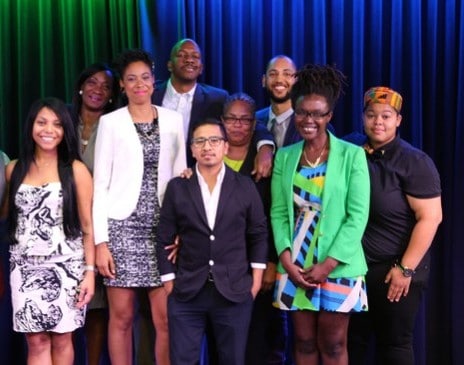IBM’s “cognitive supercomputer” is starting to get involved in law enforcement, and now there is speculation that the data-crunching device could get to the bottom of issues with law enforcements in Ferguson, Missouri, and other Black communities across the nation.
IBM’s supercomputer, better known as Watson, garnered a lot of attention after it soared to victory on the Jeopardy game show more than three years ago.
Since then, the computer has been used in matters pertaining to food science, customer service and helping veterans prepare for life after the military.
Now, authorities are hoping Watson can get more involved with police investigations like the shooting of Michael Brown, the unarmed teen who was fatally shot Aug. 9 by Ferguson police officer Darren Wilson.
Police investigations very quickly lead to thousands upon thousands of pages of reports, statements and lab results that investigators have to sort through.
While this can be a lengthy process for a human and leave tons of room for someone to miss a connection, Watson has the potential to complete years of work in a matter of seconds.
“There may be something in lead No. 25 that doesn’t make sense until you get to lead No. 2,050,” Tucson, Arizona, chief of police Roberto Villasenor told Mashable.com “How is a human going to tie those things together? Cognitive computing can.”
While authorities hope to get Watson involved in their investigations, Villasenor made it clear that humans will still need to be very involved in checking out leads and checking Watson’s results.
“It cannot be a computer or a human analysis,” he said. “It has to be an ‘and.’ We say, ‘Watson said this – let’s go check it out.’ ”
The analytical power behind the supercomputer could allow it to get a deeper understanding of issues with police that are currently being debated in situations like Ferguson.
Many influential figures are launching national discussions to try to figure out how to solve law enforcement issues in urban communities that are leading to Black men being killed and aggressive police tactics being used.
This is where Villasenor believes Watson could help sort through the chaos in Ferguson.
“There are a lot of theories being thrown out in the news media,” he said. “Being able to trudge through all the information and data, and put out accurate information, as opposed to speculation or analysis based on speculation and supposed truth that’s being put out through third-party hearsay … You need to filter through that.”
As Mashable writer Pete Pachal pointed out, it isn’t fair to say that all the comments regarding Ferguson have been “third-party hearsay.”
“Most of the commentators on Ferguson cite some statistics or studies to support their point of view,” Pachal wrote.
The difference, however, is that Watson would be able to digest more relevant data, link relevant information and sort through more files than humans can alone.
With the issue of police militarization being prominent in the media, Watson can sort through all the records that reveal what type of equipment was sold to which police agencies and departments and how this equipment has been used so far.
By analyzing this information, Watson can clearly identify if different, more aggressive tactics are being used more often in Black, urban communities.
“There are mounds of information out there that we’re going to need help sorting through to help us not necessarily answer the question, but at least define the problem,” Villasenor added. “We need to get the data-driven information, and not go with anecdotal information because there’s a lot of emotion behind it. We need to try and get past the emotion and find the truth. It may be bad, but we need to find out what it is so we can adjust.”




